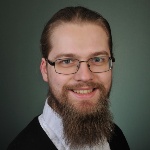This course covers some of the most important, typically advanced topics in information security and privacy. The selection of topics can vary from course to course, depending on the development of the field and the focus of the information security group.
Possible topics include:
-
Zero-Knowledge Protocols: a fundamental concept in many advanced secure and privacy preserving systems
-
Verification of cryptographic protocols: What does it mean for protocols, such as TLS, to be secure? How can we prove security? Can we prove security using automated tools?
-
Secure Multi-Party Computation: how can multiple parties compute a common function without revealing their input? E.g., how can two millionaires figure out who earns more without revealing their income to each other?
-
E-Voting: Can we have a system where voters can make sure that their votes were actually counted even when the voting servers are completely malicious?
-
Bitcoin and cryptocurrencies
-
Web-based security protocols, such as web-based single-sign on protocols
-
Advanced attacks and defenses in as well as models of web security
Exam
You have to obtain at least 50% of all points in the homework in order to be admitted to the final exam.
The exam will either be a written exam (90 minutes) or an oral exam (30 minutes), depending on the number of participants.
In the exam, you may use an analog language dictionary without any annotations and without loose pages. No other tools are allowed.
Language
Both the lecture and the exercise are held in English.
Literature
This course is self-contained. For supplementary reading, we recommend the following materials:
Zero Knowledge Proofs:
- "Foundations of Cryptography I", Goldreich, book
- "On Sigma Protocols", Damgård, paper
Secure Multi-Party Computation:
- "Efficient Secure Two-Party Protocols", Hazay, Lindell, book
- "Secure Multiparty Computation and Secret Sharing", Cramer, Damgård, Nielsen, book
- "Secure MPC Based on Secret Sharing", Smart, presentation
- "Cryptography Made Simple", Smart, book
- "Foundations of Cryptography II", Goldreich, book

Ralf Küsters
Prof. Dr.Head of Institute

Marc Rivinius
M.Sc.Ph.D. Student

Nicolas Huber
M.Sc.Ph.D. Student

